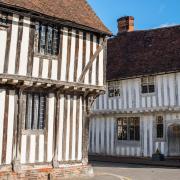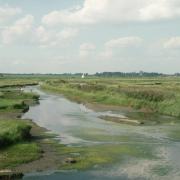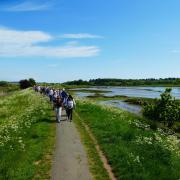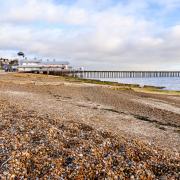David Green meets the tenacious team at the Seagull Theatre in Lowestoft who refused to let their stage go dark forever

When Suffolk’s Seagull Theatre closed its doors following the withdrawal of local authority funding the local community refused to accept defeat.
A fund-raising campaign was launched with the support of leading UK actors including Dame Judi Dench who became its patron.
But the theatre was ultimately saved by the intervention of a local couple who generously bought the building on the community’s behalf.
Now the theatre, in the Pakefield ‘suburb’ of Lowestoft, is back providing performance and arts workshop space for hundreds of people with the help of volunteers who carry out a myriad of jobs, including manning the box office and bar and helping with technical support, costuming and props making.
For Karen Read, 42, a local mother-of-four, the theatre has become an increasingly important part of life.
In earlier years she was part of the audience at shows. Then her children performed in the theatre for various local groups and she became a volunteer. Now she is the Seagull’s manager.
“Our continuing survival is totally dependent upon our volunteers. Without them we could not keep things going,” she said
The Seagull Theatre building, which dates back to the Victorian era, was originally a school – boys and girls having separate accommodation – but after the Second World War its purpose changed. The following decades would see it being used for various forms of education, including an art school, motor engineering workshop for students, a music, dance and drama centre and a theatre.
Running on a “shoestring” budget – as it still does today – storm clouds loomed when, nine years ago Suffolk County Council withdrew its funding and prepared to sell the site for redevelopment, causing outrage.
With no other substantial funding source, the theatre was forced to close its doors – despite a Save Our Seagull campaign – headed by local actor and script-writer John Hales together with Paul Hobbs and Gary Hilton .
It was backed by Waveney MP Bob Blizzard and nationally known artistes including Dame Judi who had worked alongside Jim Broadbent and Kate Winslet in the area five years previously, making the award-winning film, Iris.
Windows were boarded up – some of them still remain boarded today for lack of repair funds – and campaigners feared the lights had gone out in the theatre for the last time.
But within a year it had been saved as a result of the generosity of a local couple, Bridget and Ian Fosten , who successfully negotiated with the council to buy the building.
“There were various attempts by local groups to purchase the theatre on behalf of the community but they were all thwarted,” Karen said.
It wasn’t until the eleventh hour that an ‘anonymous’ couple – later revealed as Bridget and Ian – stepped in to agree a deal.
“They gave the building to the community so effectively we have it rent free although we do, of course, have to pay running costs” Karen said.
Those running costs amount to about £60,000 a year including the wages of two part-time employees – Karen herself and Aaron Walters, the technical manager.
The Seagull, which has a 110-seat auditorium and three large studios, is now run by a not-for-profit community interest company and works very closely with local schools.
Income derives from the hire of studio facilities for drama, dance, yoga and other activities.
A grant from the Esme Fairburn Trust, spread over two years, is currently helping finances but the theatre continues to walk a financial tightrope, partly because the building has to pay full business rates.
A professional fund-raiser, Simon O’Leary, is now helping with bids for a wide range of grants to help ensure the theatre’s survival.
There is an in-house drama company called Seagull Rep, which tours its productions throughout north Suffolk and south Norfolk.
The theatre is also home to several local drama groups and hosts visits from theatre companies from all over the region.
John Hales, inspiration for the Seagull Rep, was manager for some years before having to take a backward step due to illness and was replaced by Paul Amer who departed in January 2015, handing over the reins to Karen who has lived locally all her life.
“I think my local knowledge and the contacts I have with local schools as a result of my children being pupils helps a great deal.
“Negotiating rules and regulations with four children over the years has held me in good stead for a job like this! It is a second home for me and many other people.”
Among volunteers are long-term unemployed people and the Seagull has proved the launching board for some of them to obtain paid jobs elsewhere.
“The Seagull is a community theatre and we need the community to be involved so we can provide performances and facilities to be enjoyed by the community,” said Karen. whose four children are Callum, 20, Maria, 18, Lilla, 14, and Charlie, 10.
“Local people offer up their precious time and talents to make us what we are today.”
“There is no discrimination – it doesn’t matter what age or gender you are, where you came from and what your background is. If people would like to join the team, even if they are not sure what they want to do, we will welcome them.”
Anyone interested in volunteering at the Seagull should contact Karen, tel. 01502 589726.



























